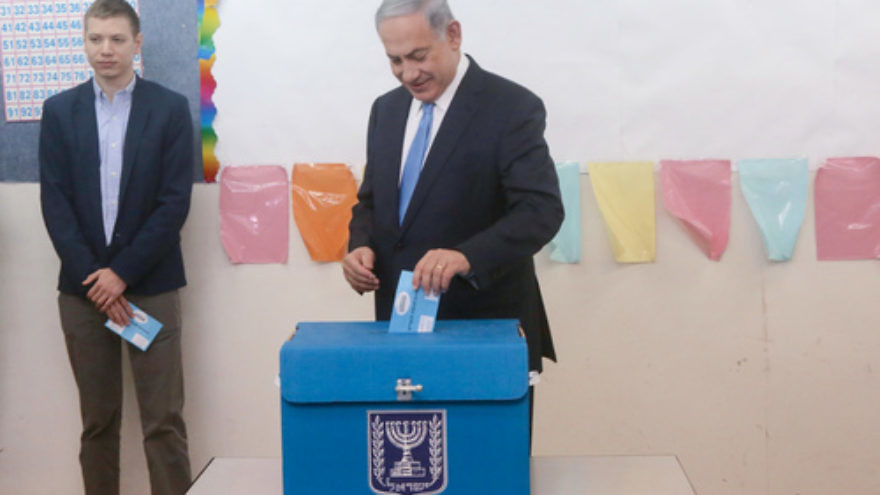It’s Election Day in Israel on Tuesday. After a long campaign – not devoid of recriminations, fake news and accusations of real or imagined misdemeanors – we’ll finally be able to cast our votes. The country won’t return to normal the day after, because that’s when the horse trading about coalition partnerships will start, but perhaps politicians will now be able to control at least some of the nastiness of the campaign, and the country will seem more normal again.
The accusations of foreign interference have been particularly poignant. They include comments about Trump’s declaration about the Golan being Israeli territory (and not Syrian); Putin receiving Netanyahu and allegedly helping him to return the body of a soldier lost in Lebanon 37 years ago; the visit of Brazil’s president the other day; even, somewhat pathetically, the quick trip to Paris by one of the opposition leaders for a photo op with Macron.
By law, no more opinion polls may be published. Though, as has been proven in other countries and in Israel, these are notoriously unreliable, the media make much of them. To me, the most ridiculous “result” was that 50% of Israelis polled the other day say that polls don’t reflect the truth. Obviously, that result must be one of them.
A television program on Saturday night interviewed a number of Israelis who don’t intend to vote. Judging by previous results and current predictions, at least a third of eligible voters won’t vote, often saying something to the effect of “a plague on all your houses.” It seems that Prime Minister Netanyahu believes that he has most to lose through absenteeism. He has, therefore, issued a warning that a lot of his potential supporters won’t vote on the assumption that he’ll win without them. Days before the last election his lament was that the Arabs will come out “in droves” to vote against him. (They didn’t and won’t do it this time either, not even for their own parties – to their own great detriment. They could have more influence in the land if their parties had more seats)
Another warning from the prime minister’s supporters is that President Rivlin may ask the leader of the Blue and White coalition to try to form a government, even if Netanyahu’s Likud gets more Knesset seats. There’s no love lost between the president and the prime minister, even though they belong to the same party.
In addition to the two great blocks, Likud and Blue and White, and Labour trailing pitifully behind, there’re several other parties, not all of which will get the minimum number of votes to be able to send candidates to the next Knesset. In a way these will decide what kind of government Israel will get. Several of them are far right of Likud and will want to join a Likud-led government with Netanyahu as prime minister. However, pundits tells us that there’s also room for surprises.
The surprise won’t come from the ultra-Orthodox; they’ve already said as much. But it may come from a new party led by Moshe Feiglin, who had been dropped by Likud from the Knesset and now holds a range of eccentric views from legalizing cannabis to rebuilding the Temple forthwith. We’re bound to hear more about it than it is good for us or for the country. Many previous elections have voted in marginal parties that lasted until next time the country went to the polls and then vanished as ignominiously as they came.


























